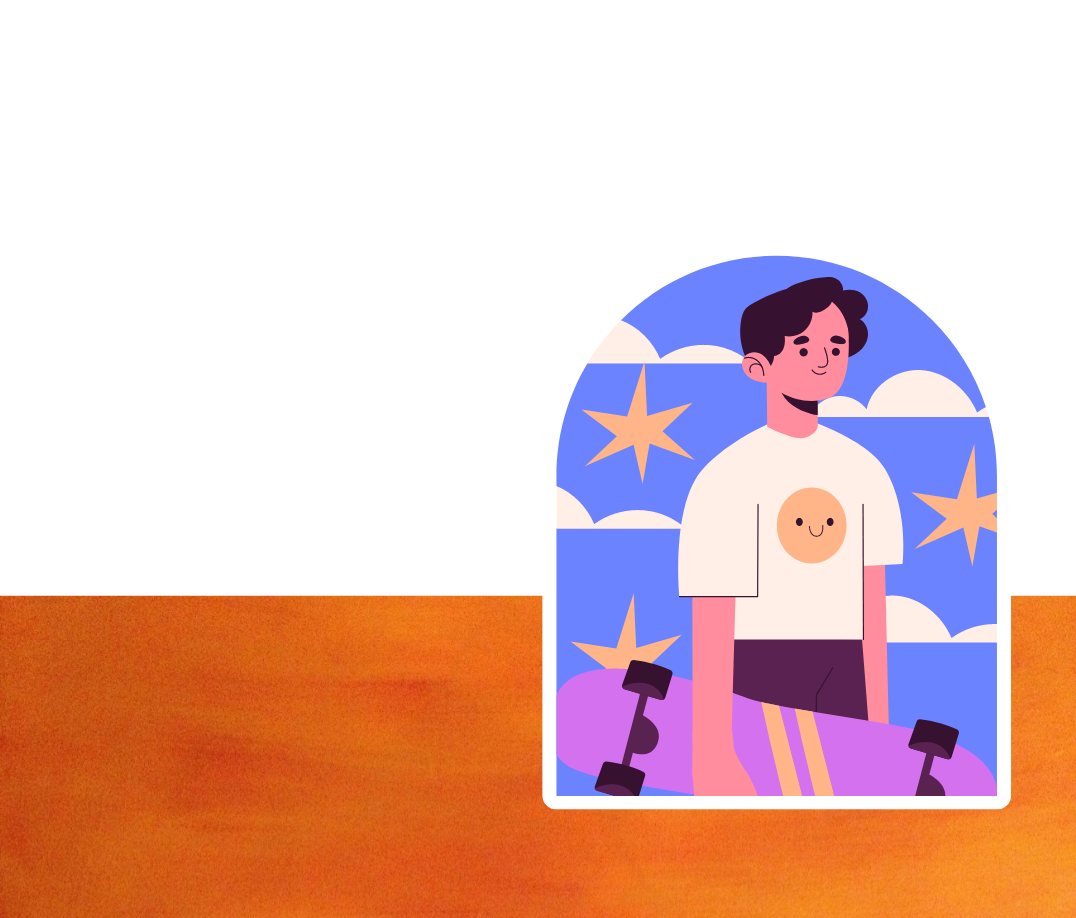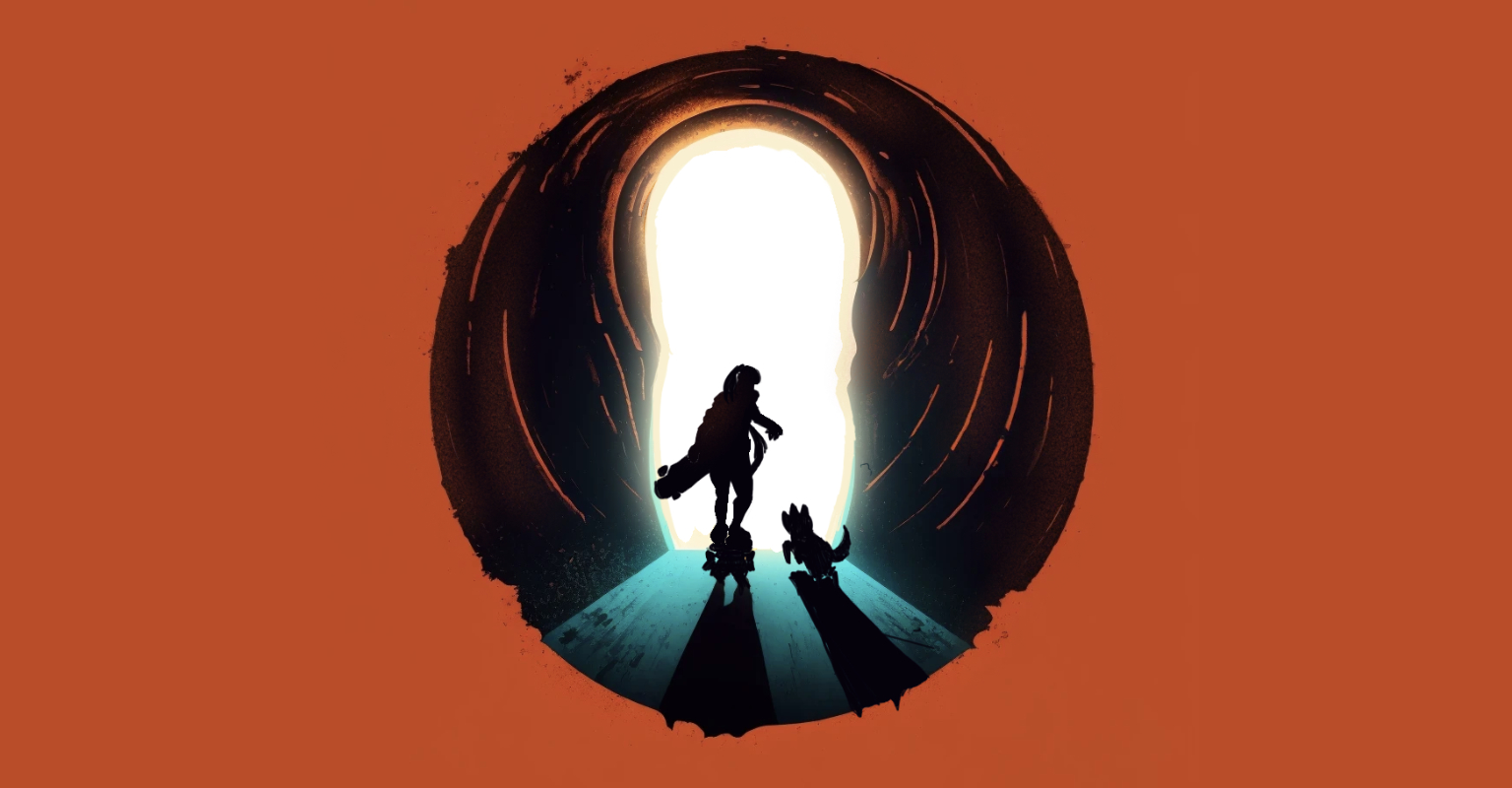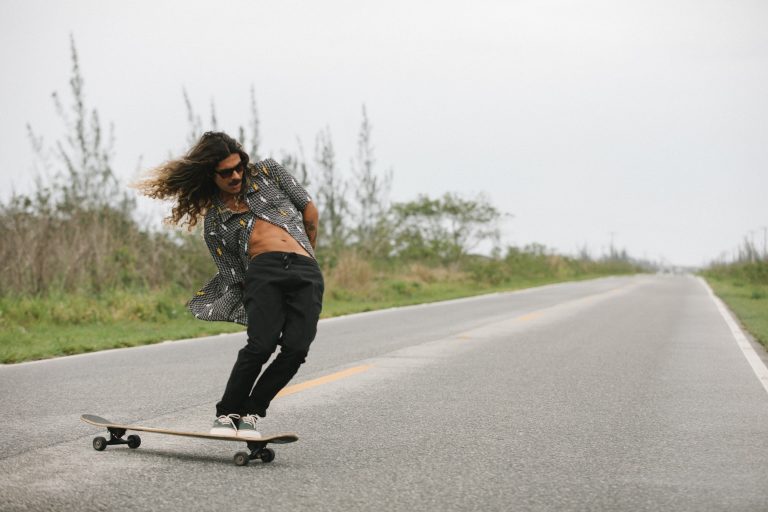9 min read • Feb 24, 2023
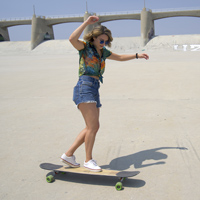
Michael Brooke on riding the endless wave of life
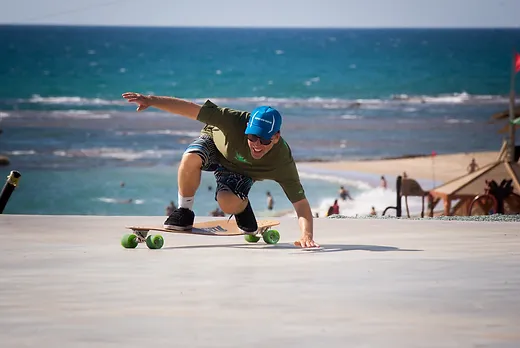
Michael Brooke still shreddin'
It’s a macabre reality that all of us will die. In a generation or two, even our memory might be forgotten. Some people distract themselves from this truth. Others face it head-on—seeking out spaces to create legacy and impact on individuals and communities around them today. Michael Brooke believes skaters fall into this second category.
A skateboarding historian and former editor of two legendary skate magazines, Michael has most recently been working as a funeral director’s assistant.
His first magazine, International Longboarder, was the world's first longboard magazine, running from 1999–2002. Michael's second publication, Concrete Wave, was a unique contribution to the skate community early in the sport’s history.

Cover of International Longboarder magazine, Summer 1999
But Michael’s work at the funeral home has been hugely impactful on his perspective. Therefore, it would be natural that Michael would be well-positioned to write a book about skateboarding, death, and spirituality. The book, The Endless Wave, which was released November 2021, covers themes of individual legacy, grief, the importance of shared history, and how skating fits into these oftentimes difficult topics.
I myself have never shied away from morbid topics. (Michael would probably say that it’s a reason that skating appealed to me as a sport). My mindset of amor fati, ironically enough, fuels my optimism and focus on living a full, regret-free life. So I was thrilled to get a chance to sit down with Michael to talk about his book, skating, and death more broadly.
If you’re interested, check out Michael’s free book, The Endless Wave, as well as his recent work with Billy James of Shred Shack.
Laura: How does the experience of skating parallel the ups and downs of the human experience?
Michael: While skating, at some point we will most likely feel a range of emotions: from good to great to bad and somewhat ugly...and yes, even destructive. But skateboarding is an amazing outlet.
It can feel great to just get out there and push on a longboard. That’s the good….and you want to share this stoke with everyone you meet.
But then WHAM! You hit a rock and you’re thrown off your board and you give yourself a huge bruise. That’s the bad…and you work through the pain knowing that it will pass (eventually).
Then there’s the ugly - the times when people don’t understand why you’re doing this (at YOUR age!) or you face scorn from a bunch of street skaters who don’t think longboarding is skateboarding. That’s the ugly part….and you take those feelings and you work through them and you become stronger.
Laura: I care a lot about making skating a more inclusive sport/activity for all. There was a lot of aggression that came hand-in-hand with 90s “skate and destroy” culture that came from the anti-establishment / counter-cultural mindset. Should we as a community hold onto that legacy?
Michael: I think built into the DNA of skateboarding is a “question authority” mentality. This grew out of the fact that not everyone appreciates skateboarders in their neighborhood. And it's been going on for over 60 years!
This mentality can lead to all sorts of beliefs and actions. But things change and get refined. I like the fact that skateboarding can be counter-cultural.
I will admit there are times when you feel like you just want to explode, and skateboarding provides an amazing outlet. I say that as a former teenager with a great deal of angst. I also say it as a 58-year-old who loves the feeling of just letting off steam after a rough day at work.
But what I love even more is how inclusive it has become. The legacy of skateboarding is really about freedom - the joy that you experience on any terrain with any type of board.

Michael hitting a homemade ramp, 1975
Laura: That resonates so much with me. Everyone deserves access to that feeling of freedom and flow. So how do the concepts of flow, serendipity and death fit together?
Michael: As skaters, we find flow in the act of riding. But beyond the act of skateboarding, we encounter fellow skaters and situations.
For example, a skateboard allows you to travel faster than walking…you can cover a lot of ground quickly. This is a very unique thing. Think of this way - you can only play tennis on a tennis court and golf on a golf course.
You have remarkable portability in a dense urban environment with a skateboard (unlike a bike which you can’t really transport in the same way).
And as a result of these two elements, you can find a tribe of like minded people (or just ride with yourself and explore) - time passes quickly when you’re out there riding - that’s the flow.
But here’s the thing: you just never know who you might run into or what could happen. That’s where serendipity comes into play.
Skateboarding can lead to so many things...if you let it. That's why I always say I've never graduated flow state.
Death is the final frontier and the one thing that many people hate talking about. Well as a skateboarder for almost 48 years and somebody who works in the death care field, I felt it was time to use skateboarding as a catalyst to strike up these conversations.
Being surrounded by so much death gives you a newfound appreciation for life. If my book winds up being read by a younger skater who is fearful of death but it makes them less fearful, then it's done its job.
Laura: Death is inescapable. As is the grief that comes with it. But as you highlight in the book, grief can also be experienced through injury – the loss of physical agency, an inability to skate, real impacts on mental health. What can each of us learn through these moments of grief?
Michael: This is an extremely difficult question to answer. The truth is that everyone has their own way of coping with grief and it's based on their own personal experiences and who they are grieving for.
As a funeral director's assistant, I've seen grief up close now for 4½ years. Sometimes grief comes because the living person wasn't able to communicate exactly how they felt about the person who is now dead. Regret can be like an acid that burns in the grieving person's heart.
The other thing I've seen right away at funerals is when a family has invested time in the children and grandchildren. The eulogies are filled with stories, and while they are bittersweet, these memories are like a soothing balm to the grieving family and friends.
One critical thing I would recommend is that a friend of mine has created an app called Encircle Grief that helps people deal with grief. It's an amazing new tool and gives you prompts on how to best support those who are in mourning along with those who are grieving the loss of a loved one.
Laura: It sounds like managing grief comes down to being honest with your emotions and vulnerable with your community. How are skaters uniquely positioned against the fear of change, regret, etc?
Michael: I'd like to think that somehow in its own special way, skateboarding allows people to maintain a youthful spirit. Age really is just a state of mind.
Skateboarding is always changing. And this change can be difficult for some to process including the actual skateboarding industry itself.
Laura: Change forces each of us to be honest with ourselves about what matters.
Michael: Right. You can never go back to your past, but what you can do is take things that you enjoyed in your past and bring them to your present.
When skateboarders find a unique spot, they immediately want to grab their board and try it. And when skaters meet up with other skaters, there's a lot of information that is exchanged and a lot of pure stoke that is experienced.
To net it out I'd say this: Being part of a community of skaters is really the best way to charge through life.
Laura: Community is so important. It’s one of the best tools we have for mental health. The pandemic, for example, was emotionally hard on all of us.
Michael: Ever since the pandemic finished, people have been anxious to get back to a groove of meeting up and living into that feeling of wellbeing. People are riding for their minds, facilitating meetups to ride locally, with small meaningful groups that can support each other emotionally.

Illustration of what goes into landing a trick, from @skateofmindsociety
Laura: Absolutely. There are even online communities, like Skate of Mind Society, that provide spaces for talking about mental health and difficult emotions, particularly as it pertains to skating.
Michael: There’s something there for sure. We as a society in North America still aren't prepared for these hard conversations. We're not prepared for the death onslaught. Funeral homes are certainly not prepared. Unlike the concrete wave, which is a fixed thing, we’re continually riding the endless wave of life. And that’s where the book’s title comes from.
There are very few skaters who are in their 70s, but that's coming in twelve years from now. I'm 70. It's not that far away.
Laura: Are there ways you think that we can bridge that intergenerational gap to learn from each other, or people who are further along in “the current,” metaphorically speaking?
Michael: I think Bob Marley said it best: “If you know your history, then you would know where you coming from, then you wouldn't have to ask me, who the heck do I think I am.”
If you understand the history of skateboarding and you understand what the pioneers of skateboarding achieved, it will give you such an incredible perspective and insight.
The truth is that skateboarding has a rich history filled with some of the most remarkable stories and individuals.
Laura: Well I, for one, am thankful that you’re still cataloging and sharing these stories.
Michael: Thanks, and I want to thank Billy James over at shredshack.com for getting me back into skateboard media.
Read The Endless Wave now, for free and online.

for skaters, with loads of love.© Circa 2021 - Amp Skate LLC
